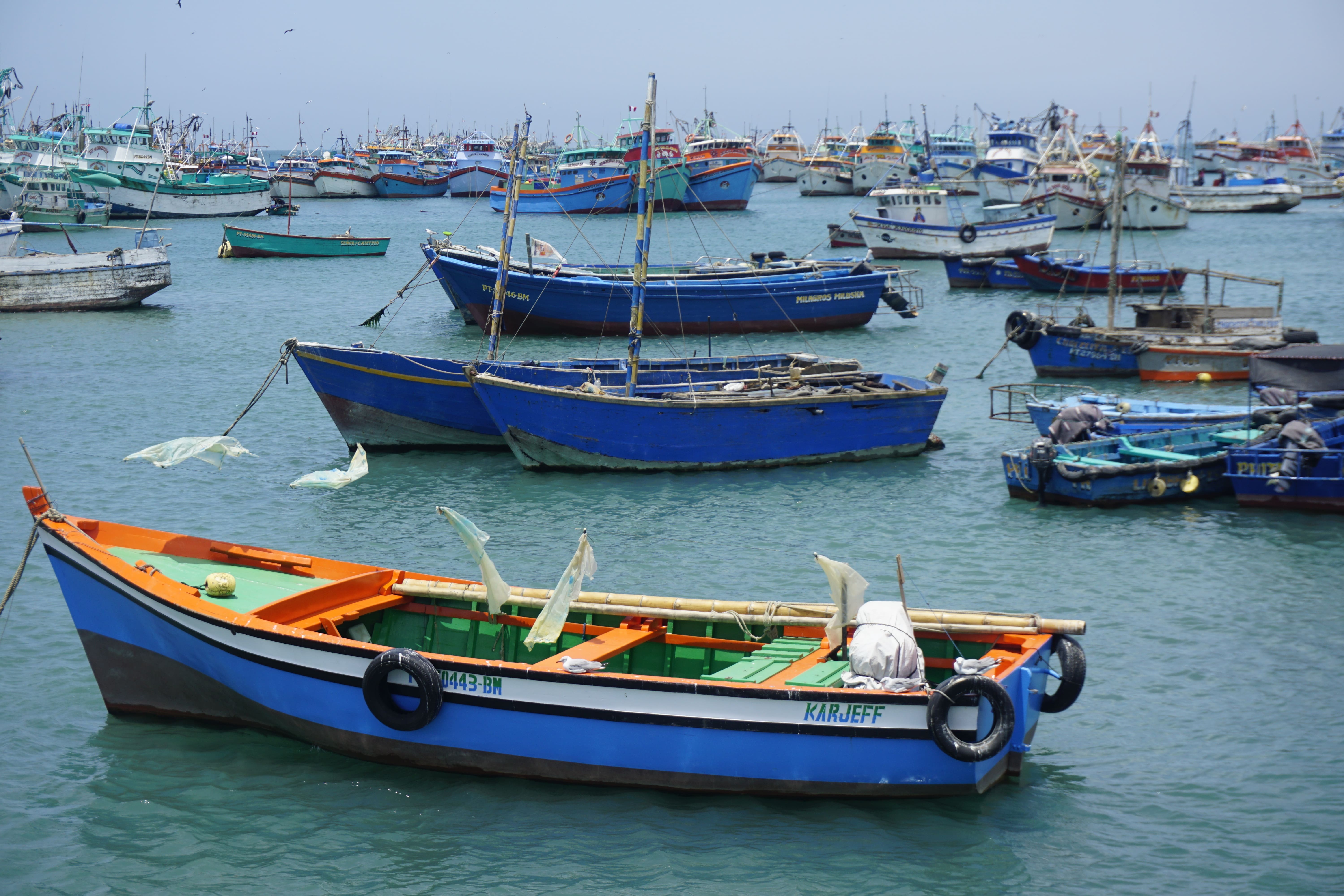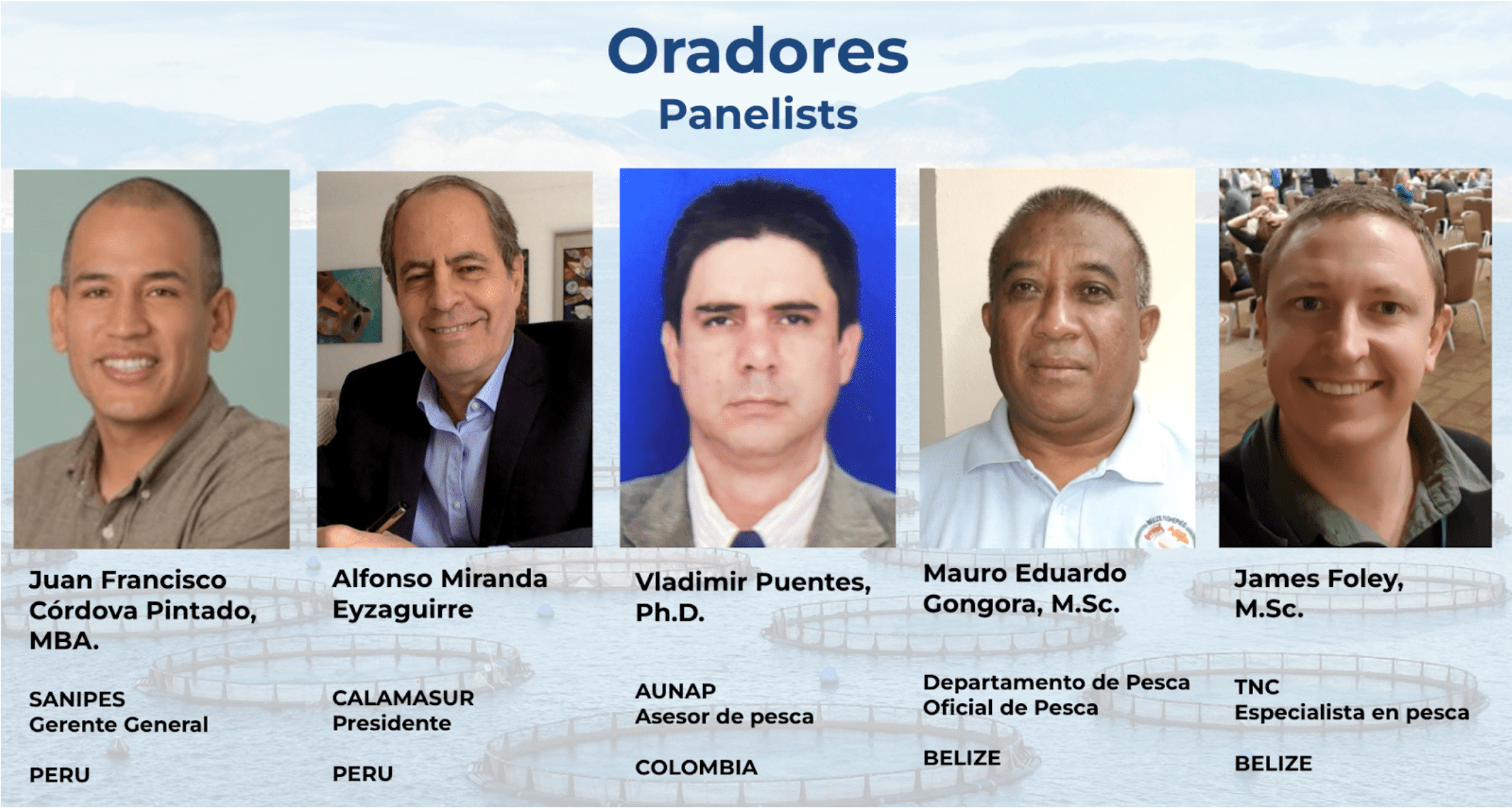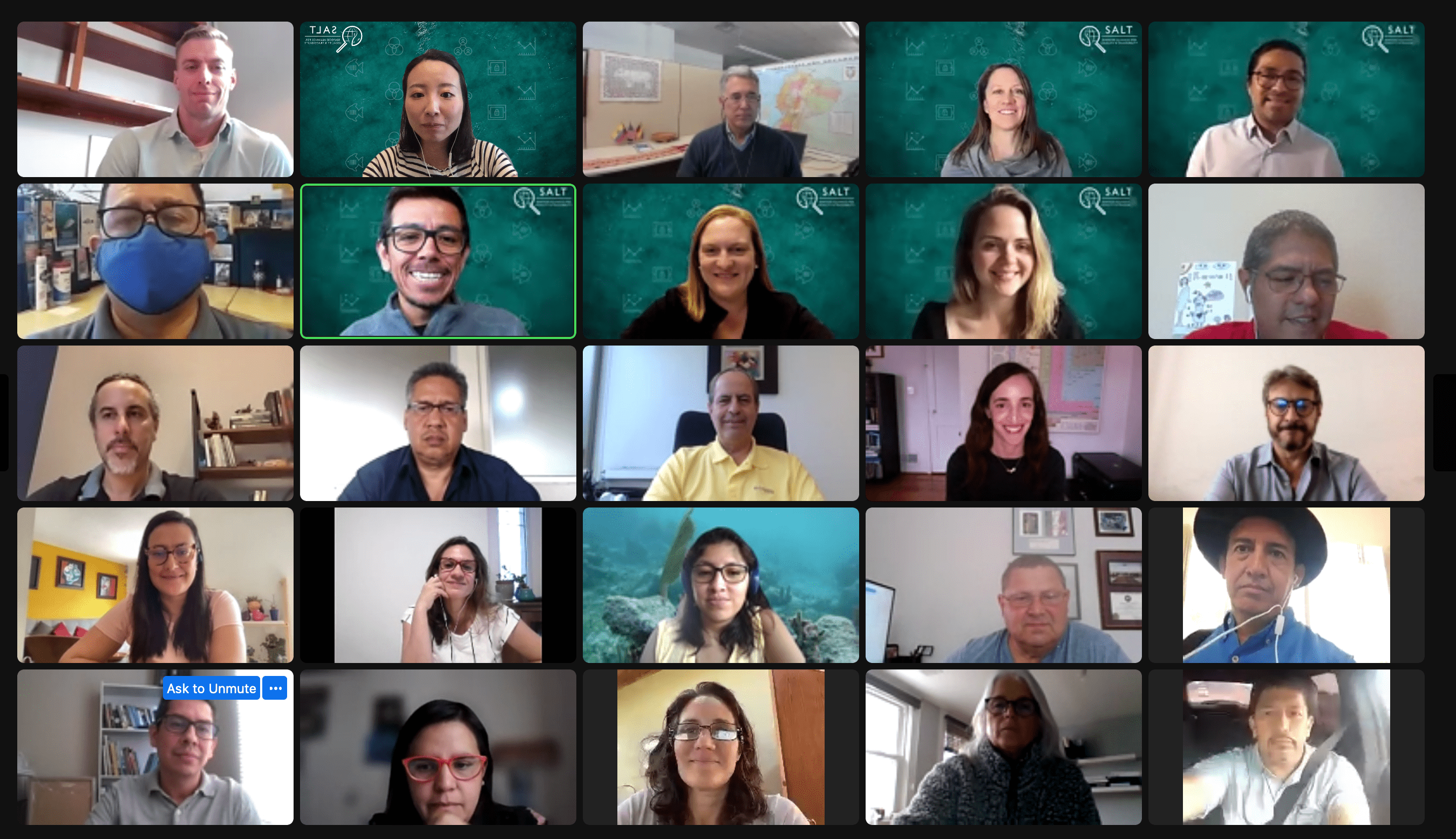
Bringing Seafood Traceability Principles and the Spirit of Collaboration to Latin American and the Caribbean
Ingrese aquí para leer el blog en español.
SALT understands that traceability helps increase transparency throughout seafood value chains, reduce the risk of Illegal, Unregulated and Unreported (IUU) fishing, prevent seafood fraud (such as species substitution), and decrease the likelihood of human and labor rights abuses in seafood supply chains.
Traceability work in the Latin American and Caribbean (LAC) region is growing. Given the traceability interest from countries like Belize, Peru, Mexico, Ecuador, and Chile—and ongoing IUU fishing issues in the region—LAC is a region of interest for SALT.
Based on opportunities for engagement and impact in the LAC region, SALT focused its work in Peru, Colombia, and Ecuador, and other countries within the LAC region where governments and SALT’s partners are interested in or currently working on traceability efforts in the seafood sector.
To support traceability efforts, build capacity around SALT’s co-created Comprehensive Traceability Principles, and connect key stakeholders in the LAC region, SALT hosted a series of virtual learning events that recently concluded. Each aimed to identify challenges and opportunities for electronic traceability in the region.
Part 1: Promoting holistic traceability and regional collaboration
On November 9th, 2021, SALT hosted the first part of the workshop, “Comprehensive Traceability to Combat Illegal, Unreported, and Unregulated Fishing in Latin America and the Caribbean,” and included simultaneous translation in English.
The workshop aimed to:
- Bring awareness of the relevance of the seafood traceability Principles and Pathway to the LAC region
- Identify opportunities to incorporate the seafood traceability Principles and Pathway into existing traceability efforts to increase the benefits of electronic traceability
- Identifying barriers and opportunities for governments in the LAC region to implement traceability efforts
- Increase coordination among the diverse groups working in the fishing sector: counter illegal fishing advocates, governments, USAID, regional organizations
These objectives should help governments, NGOs diverse groups working in the fishing sector identify priorities to implement traceability and counter illegal fishing efforts.
In this workshop, more than 100 participants from 10 different LAC countries (with high attendance from Ecuador, Peru, Mexico, and Colombia) had the opportunity to discuss their traceability objectives and challenges. Additionally, the workshop allied participants to create connections and foster collaboration to improve traceability efforts throughout the LAC region.
More than 40% of the participants were government representatives from seafood-producing countries, followed by representatives of non-governmental organizations (NGOs) (30% of participants).

The workshop also included breakout discussions where stakeholders—approximately three quarters of the participants—had the opportunity to openly discuss and share their ideas.
As a result of these discussions, SALT identified four main challenges:
1) Interoperability of technology and institutions:
- Difficulties getting institutions to collaborate and integrate their varying traceability objectives into one cohesive program
- Challenges translating legislation into a technology system and then integrating that with existing technical systems proved to be a recurring challenge
2) Incentivizing small-scale fishers to participate in traceability programs:
- Lack of financial incentives for small-scale fisheries
- Need to communicate market-based incentives suitable for small-scale fishers
- Need to build capacity for small-scale fishers to learn traceability technology
3) Confidentiality and trust issues:
- Lack of trust between governments and the industrial fishing sector
4) Regional coordination and collaboration:
- Lack of platform for regional coordination to help countries exchange knowledge around traceability, and continue dialogues
During the workshop, participants shared their ideas and initiatives to improve traceability, combat IUU fishing and improve collaboration within the LAC region. They expressed a willingness to participate in regional traceability efforts. The robust discussions held during the first part of this workshop left participants wanting to continue their conversation, to achieve these objectives throughout the region. Therefore, SALT was thrilled to organize a follow-up event!
Part 2: Continuing the discussions
On March 23, 2022, SALT held a second workshop to continue the dialogue. This second session had a purely participatory approach that allowed participants to discuss, learn, and exchange information and solutions regarding seafood traceability efforts in the Latin American and Caribbean Regions.

Based on the outcomes of the previous event, SALT centered the discussion around three different questions:
- What are your biggest traceability challenges and opportunities?
- What solution do you identify for your traceability challenge and what is preventing you from achieving this objective?
- What do you think are the most important regional challenges in the fight against IUU fishing, and what would you be willing to do in your role to combat it?
SALT brought to this event more than 30 participants from 9 countries including stakeholders from government, NGO, and industry. Minus a short introduction, the event focused on small-group discussions that came together in the main room to highlight their key findings. Aside from similar takeaways from the first event (interoperability and regional collaboration needs), further discussion was around:
1) New Regulation: Countries need to develop a regulatory framework for electronic traceability that will consider the entire region.
- There is currently a lack of national normative regulations regarding electronic traceability. Designing regulation for electronic traceability will have to incorporate a regional approach.This regulatory framework should involve fishing and aquaculture sectors and apply to domestic and export markets.
2) Government engagement: Governments will need to include traceability efforts in their agenda
- There is currently interest among governments and NGOs in developing traceability programs. These stakeholders can use this momentum for electronic traceability programs as an opportunity. However, constant changes in government representatives may be an obstacle to consider.
3) Markets and consumer demand: Using market requirements and consumer demands as a tool for promoting seafood traceability
- Markets, and mainly export markets, can be used to promote electronic seafood traceability within the LAC region. Export markets like the USA and EU require high traceability standards. Countries will need to comply with these requirements to access these markets. Since sustainability certifications may influence consumer preferences, consumer demand can also serve as a tool to promote seafood traceability.
4) Technology as a tool: Increased access to technology can advance electronic traceability
- Technological tools have advanced and become more accessible throughout the region, which facilitates the implementation of traceability systems and access to information.
5) Regional traceability challenges: Countries face similar challenges when implementing seafood traceability
- Challenges to implementing electronic traceability do not exist in a single country. Participants had the opportunity to identify and learn from each other’s common challenges that require regional cooperation.
SALT’s two-part workshop created the space for government officials, NGO representatives, industry, and other stakeholders to openly talk about their traceability challenges and efforts to combat IUU fishing and present ideas. These open conversations allowed participants to learn that their challenges are not unique to their countries and are, instead, of regional concern. SALT helped promote regional collaboration and coordination through this series of workshops and will continue to collaborate within the LAC region.
Feel free to reach out to SALT to share your traceability efforts, needs, ideas, and suggestions. SALT will be happy to learn how we could collaborate with you to implement the traceability principles and pathway. You can send us an email at salt@fishwise.org.
